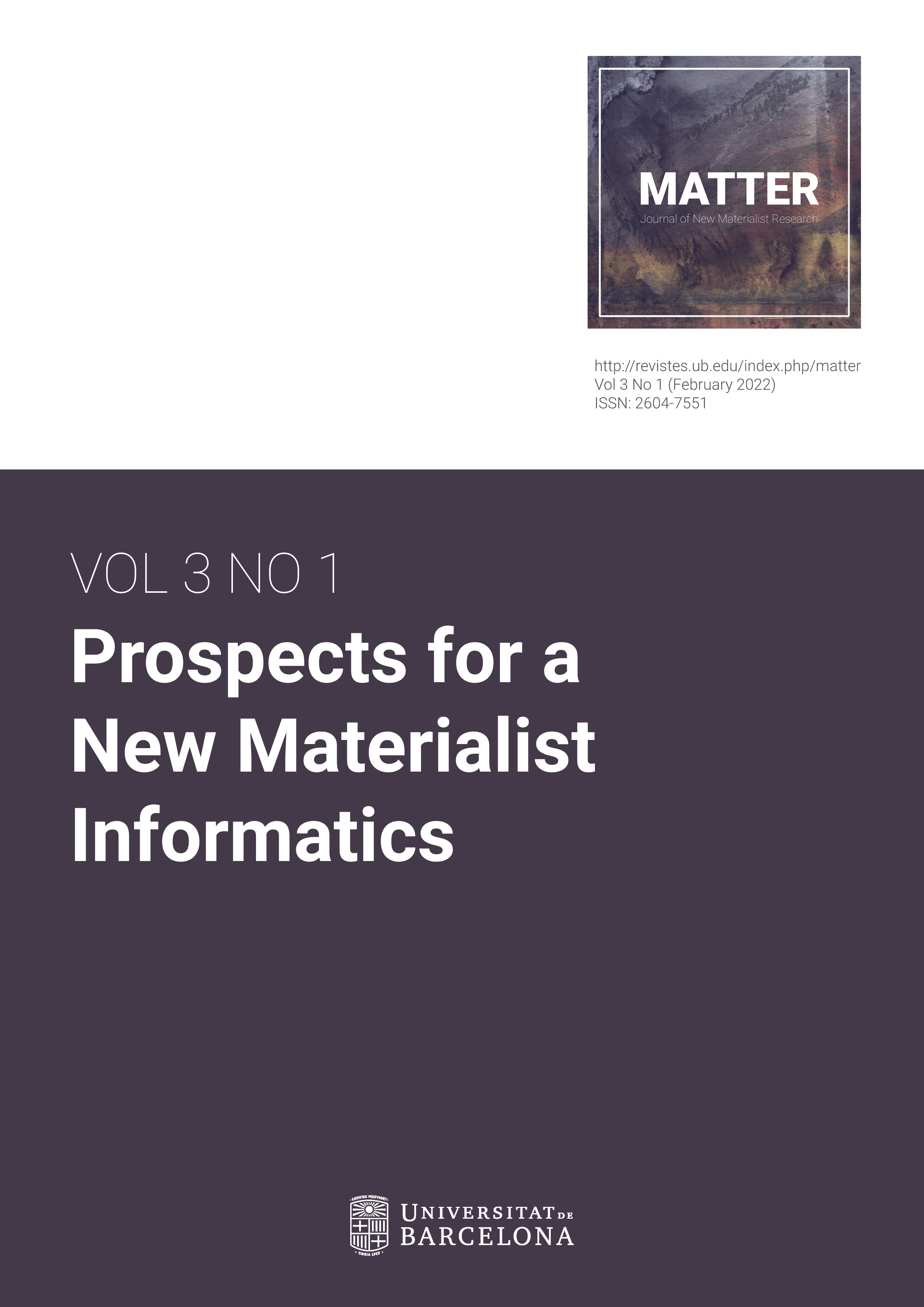Contagious Education
DOI:
https://doi.org/10.1344/jnmr.v3i1.38965Keywords:
Data; Governance; Sensors; Biopolitics; Decolonization.Abstract
The use of data to govern education is increasingly supported by the use of knowledge-based technologies, including algorithms, artificial intelligence (AI), and tracking technologies. Rather than accepting these technologies as possibilities to improve, reform, or more efficiently practice education, this intra-view discusses how these technologies portend possibilities to escape education. The intra-view revolves around Luciana Parisi’s idea of “digital contagions” and participants muse about the contagious opportunities to escape the biopolitical, colonial, and historical rationalities that contemporary education now uses to govern populations in ways that are automated, modulated, and wearable.
Downloads
References
Anderson, Ben. (2006). Becoming and being hopeful: Towards a theory of affect. Environment and Planning D: Society and Space, 23, 733-752. https://doi.org/10.1068%2Fd393t
Beier, Jessie & Wallin, Jason (2020). Pedagogy of the negative: Pedagogical heresy for “the end times.” Oraxiom, 1(1), 43-58.
Bignall, Simone & Patton, Paul (2010). Deleuze and the postcolonial. Edinburgh University Press.
Colebrook, Claire (2019). All life is artificial life. Textual Practice, 33(1), 1-13. https://doi.org/10.1080/0950236X.2019.1559478
Coole, Diana & Frost, Samantha (2010). Introducing the new materialisms. In D. Coole & S. Frost (Eds.), New materialisms: Ontology, agency, politics (pp. 1-43). Durham, NC: Duke University Press.
Deleuze, Gilles (1992). Postscript on the societies of control. October, 59, 3-7.
Hong, Sun-ha (2020). Technologies of speculation. New York University Press.
Law, John (2004). After method: Mess in social science research. New York, NY: Routledge.
Manning, Erin (2010). Always more than one: The collectivity of a Life. Body & Society, 16(1), 117–127. https://doi.org/10.1177%2F1357034X09354128
Parisi, Luciana (2007). Biotech: Life by contagion. Theory, Culture & Society, 24(6), 29–52. https://doi.org/10.1177%2F0263276407078711
Parisi, Luciana (2009). Technoecologies of sensation. In B. Herzogenrath (Ed.), Deleuze / Guattari & Ecology (pp. 182-199). New York, N.Y.: Pargrave McMillan.
Parisi, Luciana (2013). Contagious architecture: Computation, aesthetics, and space. Chicago, IL: MIT Press.
Rose, Nikolas (1991). Governing by numbers: Figuring out democracy. Accounting, Organizations and Society, 16(7), 673-692. https://doi.org/10.1016/0361-3682(91)90019-B
Sharma, Sarah (2020). Coda. Staying power: These are exit times. In. P. Hesselberth & J. De Bloois (Eds.) Politics of withdrawal: Media, arts, theory. New York, N.Y. Lowman.
Silva, Denise Ferreira da (2014). Toward a black feminist poethics: The quest(ion) of blackness toward the end of the world. The Black Scholar, 44(2), 81–97. https://doi.org/10.1080/00064246.2014.11413690
Thrift, Nigel (2008). Non-representational theory: Space, politics, affect. New York, NY: Routledge.
Webb, P. Taylor & Mikulan, Petra (2021). Escape education. Educational Philosophy and Theory, https://doi.org/10.1080/00131857.2021.1926983.
Webb, P. Taylor & Mikulan, Petra (2022). Decolonizing racial bioinformatics: Governing education in contagion and dehiscence. In Peters, M. A., Jandrić, P. & Hayes, S. (Eds.), Bioinformational Philosophy and Postdigital Knowledge Ecologies. Springer.
Whitehead, Alfred N. (1929). The aims of education and other essays. New York: The Macmillan Company.
Zylinska, Joanna (2021). Postcards from the end of the world. Photography and Culture, 14(2), 191-200.
Downloads
Published
Issue
Section
License
Copyright (c) 2022 Matter: Journal of New Materialist Research

This work is licensed under a Creative Commons Attribution 4.0 International License.
The authors who publish in this journal agree to the following terms:- Authors retain copyright and grant the journal the right of first publication.
- Texts will be published under a Creative Commons Attribution License that allows others to share the work, provided they include an acknowledgement of the work’s authorship, its initial publication in this journal and the terms of the license.






